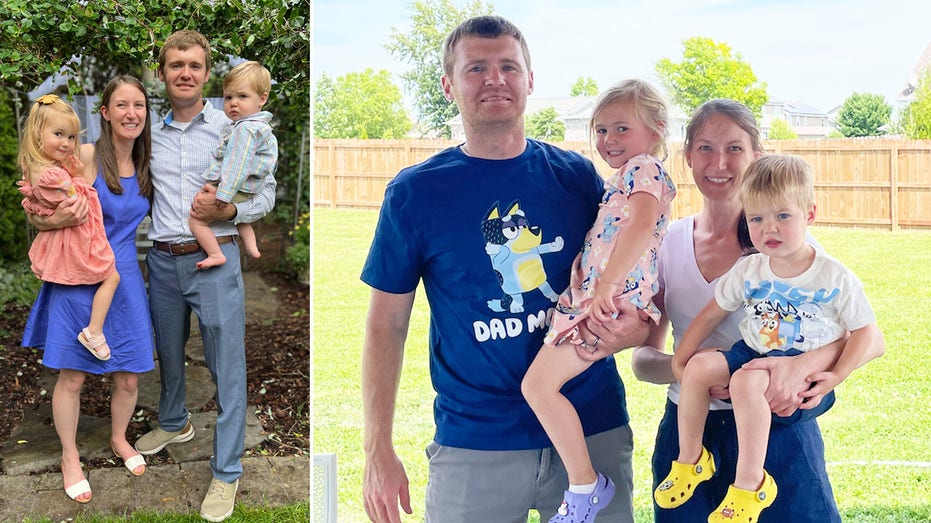Heroic Parents Save 2-Year-Old's Life During Cardiac Arrest: A Reminder to Act Quickly
Parents of a toddler highlight the crucial role of CPR training after their son's sudden cardiac arrest due to Brugada syndrome.

Most parents of toddlers worry about sleep habits and minor illnesses, but the prospect of sudden heart failure is far from most minds. For Stephanie and Kris Thomas of Illinois, however, this became a reality when their 2-year-old son suffered sudden cardiac arrest in the middle of the night.
The incident began with a piercing scream from the toddler’s room—a sound his parents described as “alarming” and unlike anything they had heard before. “Hearing him scream out was alarming, as he usually slept soundly, and it was a horrible cry,” recalled Stephanie Thomas. When she arrived to comfort him, he soon collapsed face-first into his crib.
Initially, the Thomases suspected a night terror, a common occurrence in young children. Stephanie, a clinical dietitian at a local children's hospital, sat beside her son's crib with her hand on his back, hoping to soothe him. But within moments, she realized he had stopped breathing. Acting quickly, she placed him on the floor, checked for a pulse, and initiated CPR while her husband dialed 911.
“It was terrifying and confusing—I couldn’t understand how my seemingly healthy 2-year-old could be in this situation,” Stephanie shared.
Paramedics transported the child to OSF HealthCare, where he underwent 11 days of intensive testing. Ultimately, doctors diagnosed him with **Brugada syndrome**, a rare genetic disorder that disrupts the heart’s rhythm and can lead to sudden cardiac arrest or even death. The disorder is difficult to detect, often showing no symptoms until a life-threatening event occurs.
The family recalled a previous overnight episode just a month prior. The boy had awoken screaming, gasping, and was difficult to calm, but, after settling down, seemed normal. In hindsight, the Thomases realize this may have been his first episode linked to Brugada syndrome.
Because Brugada syndrome is typically inherited, both parents underwent genetic testing. Results revealed that their son’s case was due to a “mosaic defect”—meaning his body has two or more genetically different sets of cells, rather than an inherited abnormality.
To safeguard the boy’s life, specialists at OSF implanted an **extravascular implantable cardioverter-defibrillator (EV-ICD)**—a device designed to monitor and automatically correct dangerous heart rhythms. According to the hospital, this marks the first time such a device has been implanted in a child so young. Since the initial episode, the boy has been hospitalized multiple times; each time an irregular rhythm is detected, the device delivers a “life-saving shock” to restore normal heart activity.
“More than 99% of the time, our son acts and appears healthy,” Stephanie explained, “but when his heart enters an arrhythmia that medication cannot control, the ICD steps in.”
Ongoing care includes regular hospitalizations for medication adjustments and close monitoring by Dr. Sunita Ferns, a pediatric electrophysiologist. “We monitor these devices constantly. If arrhythmias persist despite medication, we consider other technologies, including ablative procedures to modify the problematic heart tissue,” Dr. Ferns stated.
In addition to the ICD, the child takes a compounded oral medication every six hours, which he is expected to continue for the rest of his life. Episodes remain challenging for both the boy and his parents, especially since he is too young to understand what is happening.
- Arrhythmia triggers include low-grade fevers and mild illnesses like colds.
- Stephanie and Kris are vigilant about vaccines and monitoring their son’s temperature.
- Their family emergency plan includes keeping up-to-date with CPR training and remaining alert to signs of abnormal heart rhythms.
Stephanie, who has maintained her Basic Life Support certification for over a decade, emphasized the importance of CPR skills: “I always thought I’d never need it at home—but that night, the doctors and nurses weren’t there. It was up to me.”
As the Thomases continue to care for their son, they hope to raise awareness about rare pediatric heart conditions, the crucial value of emergency preparedness, and the power of parental intuition in recognizing when something is truly wrong.




